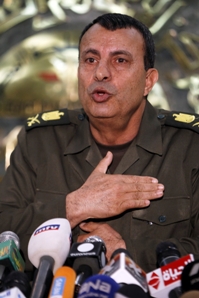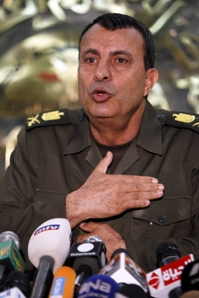New York, April 13, 2011–A new requirement by the Egyptian military that local print media obtain approval for all mentions of the armed forces before publication is the single worst setback for press freedom in Egypt since the fall of President Hosni Mubarak in February, the Committee to Protect Journalists said today.

The director of the Morale Affairs Directorate of the Egyptian military, Maj. Gen. Ismail Mohamed Othman, sent a letter dated March 22 to editors of Egyptian publications demanding that they do not “publish any (topics, news, statements, complaints, advertisements, pictures) pertaining to the Armed Forces or to commanders of the Armed Forces without first consulting with the Morale Affairs Directorate and the Directorate of Military Intelligence and Information Gathering, as they are the authorities specialized in reviewing such issues, [in an effort to] ensure the security and safety of the homeland.” CPJ has received a photocopy of the letter, and Human Rights Watch reviewed it and confirmed its authenticity.
Human Rights Watch first reported the existence of the memo on Monday. Several journalistic blogs have since picked up the story, in some instances posting a copy of the directive. A CPJ source confirmed the authenticity of the memo.
CPJ has not been able to find any reporting about the letter in traditional news media in Egypt, an indication of the new rule’s effectiveness.
“The Egyptian military’s letter to local editors amounts to censorship,” said Mohamed Abdel Dayem, CPJ’s Middle East and North Africa program coordinator. “This letter effectively institutionalizes a military censorship regime in Egypt, something that doubtlessly runs counter to the spirit and principles of the revolution.”
The military’s letter to local publications comes shortly before another serious setback for press freedom in Egypt. On Sunday, a military court in Cairo sentenced blogger Maikel Nabil Sanad to three years in prison for “insulting the military” after a flawed trial. Sanad was arrested March 28 soon after writing an article in which he criticized the military for not being transparent in its decision-making.
